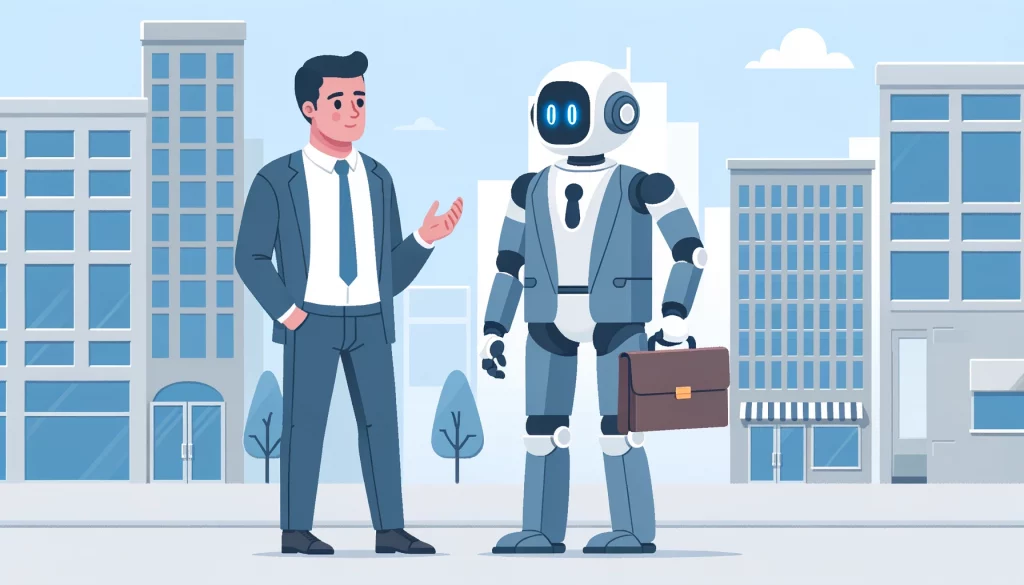Have you ever wondered how artificial intelligence (AI) is changing our lives? Thanks to widespread media coverage, it’s no secret that AI is gradually altering our existence in many ways. While some of us might not fully perceive its impact yet, rest assured, it’s already moving the needle significantly.
So, in this post, let’s discusss what the AI Economy is, and I’ll share my thoughts on how it’s evolving and its impact on us.
What is the AI economy?
Simply put, the AI Economy is a new era where AI plays a key role in making money, producing goods, and providing services. It’s about using smart machines and algorithms to do things faster, smarter, and often better than humans alone could.
This doesn’t just mean robots; it’s also about software that can understand and predict what we need or want.
So, how the AI economy set to impact our lives?
Here are some thoughts based on current trends and my vision.
Impact on Work and Employment
AI’s influence on the job market is profound and will continue to intensify. Fields traditionally viewed as creative, such as writing, copywriting, and marketing, even programming are already feeling the pinch.
Over time, with all factors being equal, it’s possible that most current jobs could gradually be replaced by AI. Jobs requiring direct human interaction, like those in medicine, might resist this trend longer.
Yet, eventually, these roles may also see AI integration.
But there’s no need for despair! With every technological revolution comes new opportunities.
Emerging roles in AI, such as prompt engineering, IT engineering, AI data science, and positions focused on helping organizations adopt and integrate AI technology, are in high demand.
Daily Life and Social Interactions
On a more personal level, AI is infiltrating our daily lives, from smart homes that optimize our living spaces for comfort and energy efficiency to virtual assistants that manage our schedules and tasks.
However, this convenience may come at the cost of reduced human contact and the potential for isolation, underscoring the importance of maintaining real-world connections.
- Enhanced Leisure Time: AI’s role in automating mundane tasks means more free time for us. This extra time could lead to a surge in creative hobbies, community involvement, and perhaps a more balanced lifestyle.
- Digital Socialization: AI-driven platforms and virtual realities are creating new ways for us to connect and interact. These technologies can bridge geographical gaps, although they also prompt discussions about the quality of digital versus face-to-face interactions.
Economic Structures and Personal Finance
The AI Economy is changing more than just jobs and how we live day-to-day. It’s also reshaping our entire economy and the way we handle our finances. Let’s break it down:
AI in Personal Finance
AI technology is making big waves in finance. Now, platforms powered by AI can offer personalized investment advice, help us save better, and manage our money more efficiently than ever before. This means that high-level financial guidance isn’t just for the wealthy anymore; it’s becoming available to everyone.
Efficiency and Work
Companies using AI for automation are getting things done faster and more efficiently, which could lead to lower costs. This efficiency might even reduce the need for as many workers, leading to shorter work weeks or, in some cases, making it unnecessary for people to work traditional jobs at all.
Universal Basic Income (UBI)
With jobs being affected by automation, there’s a growing conversation around Universal Basic Income (UBI) as a backup plan. UBI would give everyone a certain amount of money regularly, no matter if they’re employed or not, providing a financial safety net for all.
Decentralized Production
Technologies like 3D printing, enhanced by AI, are changing where and how products are made. This move towards decentralized production means making goods closer to where they’re needed and giving smaller businesses and entrepreneurs new opportunities to thrive.
Pros and Cons of the AI Economy
- Pros:
- Efficiency and Productivity: AI can handle tasks faster and more accurately than humans, boosting productivity across various sectors.
- Innovation and Services: New technologies lead to innovative products and services, making life easier and opening up new markets.
- Improved Decision-Making: With AI’s ability to process vast amounts of data, decisions in fields like healthcare and urban planning can be more informed and effective.
- Cons:
- Job Displacement Concerns: The automation of tasks by AI could lead to job losses in certain sectors, raising concerns about employment and economic disparities.
- Privacy and Ethical Issues: The widespread use of AI raises significant privacy and ethical questions, including data usage and the potential for biased decision-making.
- Inequality and Access: The benefits of AI might not be evenly distributed, leading to a digital divide where only those with access to technology and the skills to use it can thrive.
Wrapping Up
Whether we want it or not, the AI Economy is already here and progressing rapidly, significantly impacting how we live and work. For example, JPMorgan announced that its AI cash flow software has reduced human workload by almost 90%! Another impact is seen in the entertainment industry, where projects are being put on hold due to AI developments.
For individuals, lifelong learning and adapting to new job landscapes are vital. Businesses need to innovate and integrate AI responsibly, while governments and communities must address ethical, social, and economic challenges head-on.

